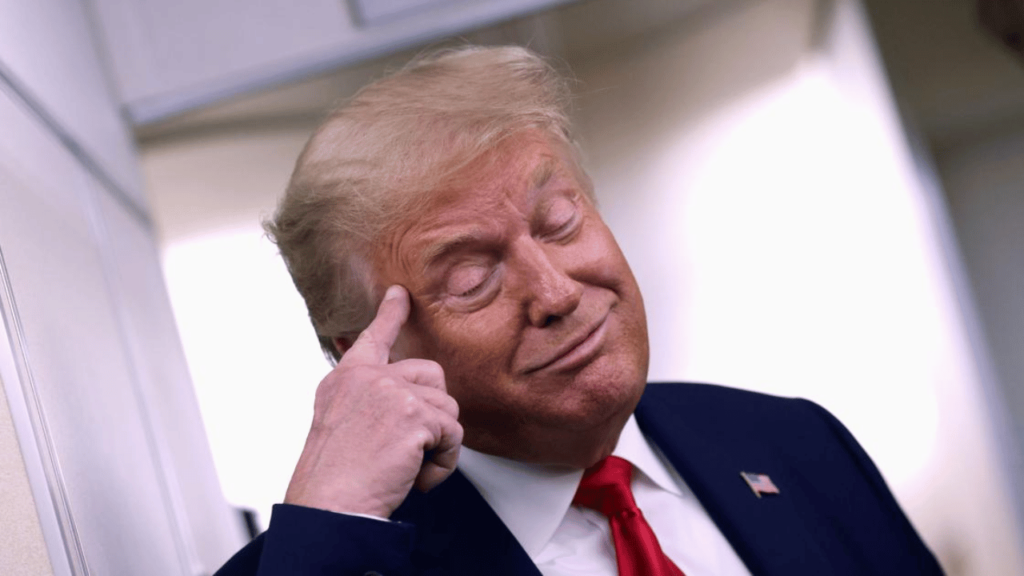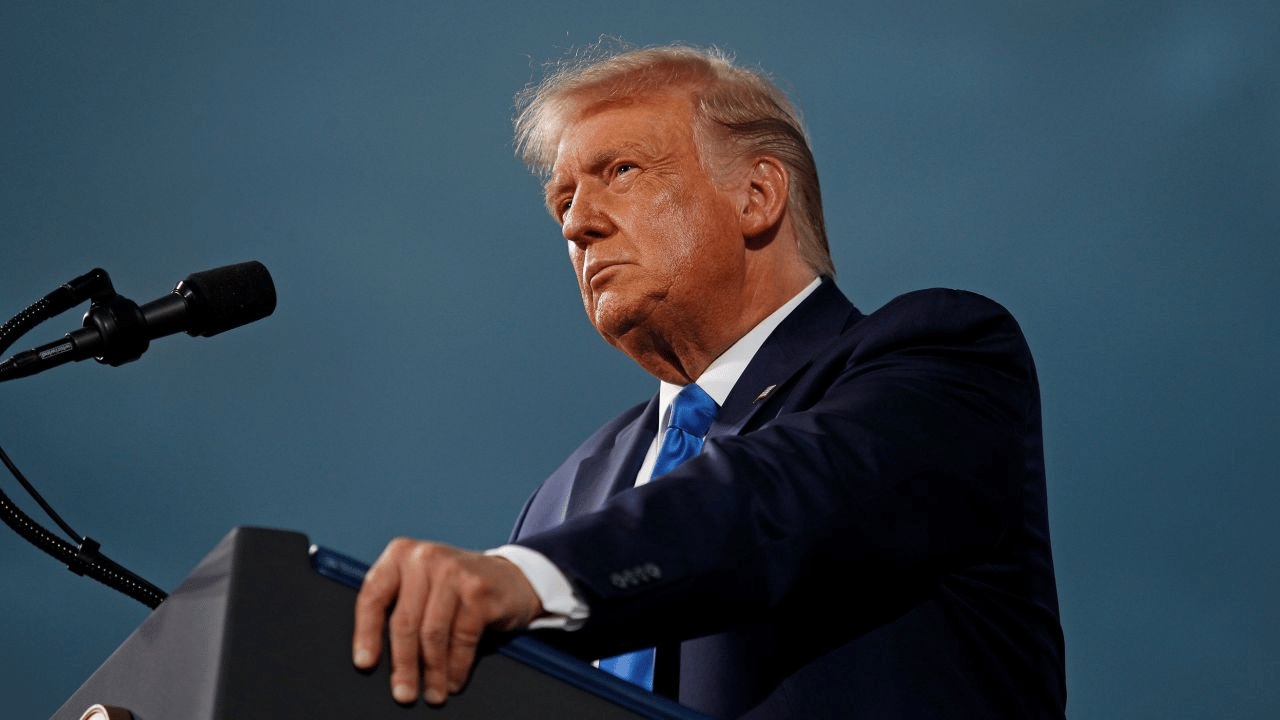In a recent interview, former President Donald Trump was asked a pointed question regarding his views on authoritarianism.
His response, or rather his lack of a direct answer, has sparked considerable discussion and raised concerns among political observers.
The question, which was aimed at understanding whether Trump believes in maintaining democratic norms or leaning towards authoritarian tactics, was met with what many have referred to as a ‘non-answer’. This response has been interpreted in various ways, but it is the silence and ambiguity that stand out the most.
Trump has long been a controversial figure, known for his populist rhetoric and his disregard for traditional political norms.
Throughout his presidency, his actions and statements often raised alarms about his commitment to democratic values.
From challenging the results of the 2020 election to undermining the role of the media and the judiciary, Trump’s leadership style was seen by many as exhibiting authoritarian tendencies. The interview in question seemed to be another moment where Trump was allowed to clarify his stance on these issues.
However, instead of providing a clear answer, Trump’s response was noncommittal, leaving many wondering about his true intentions.
His failure to address the question directly is seen by some as an indication that he either does not understand the gravity of the concerns surrounding his potential authoritarian leanings, or that he is deliberately avoiding the issue to maintain his political base.
Either way, this evasive answer is telling of his approach to governance and his relationship with democratic institutions.
For some, Trump’s reluctance to directly answer questions about authoritarianism is an attempt to sidestep the criticisms that have dogged him throughout his political career.
By not addressing the issue head-on, Trump avoids further alienating his supporters, many of whom believe in his vision of strong, centralized leadership.
On the other hand, his failure to unequivocally reject the notion of authoritarianism also leaves room for speculation about his true views. Could it be that Trump sees some elements of authoritarianism as necessary for his vision of America’s future?

It’s important to note that this ‘nonanswer’ is not an isolated incident. Throughout his political career, Trump has often dodged questions or provided responses that leave more questions than answers.
This tactic, while frustrating to many, has proven effective in rallying his base, as it allows him to maintain a sense of mystery and unpredictability.
For Trump’s supporters, this strategy feeds into the narrative of him being an outsider who is not bound by the constraints of traditional politics. For critics, however, it raises serious concerns about the long-term implications of his leadership style.
In recent years, there has been growing concern over the erosion of democratic norms around the world. Leaders in various countries have been accused of undermining democratic institutions and consolidating power in ways that resemble authoritarian regimes.
Trump’s ‘nonanswer’ to the question about authoritarianism may seem like a small moment in a much larger political landscape, but it is part of a pattern that has many fearing for the future of democratic governance in the United States and beyond.
The fact that Trump’s response was not more forceful or definitive raises the question of whether he believes that authoritarian tactics could be justified under certain circumstances.
It also points to the ongoing debate about the limits of executive power and the role of checks and balances in a democracy.
While Trump may not have explicitly stated his preference for authoritarianism, his actions during his presidency, such as attempting to overturn election results and attacking institutions like the judiciary, suggest that he is willing to push the boundaries of democracy.
This lack of clarity is a significant issue because it underscores the uncertainty surrounding Trump’s political philosophy.
Does he genuinely believe in democratic norms, or does he see them as obstacles to achieving his vision of America? His evasiveness in answering the question about authoritarianism only deepens the mystery and leaves many Americans questioning whether his leadership would be compatible with the values of democracy.
In conclusion, Trump’s ‘nonanswer’ to the question about his authoritarian tendencies is not just a minor slip-up but a reflection of a broader pattern of behavior.
His reluctance to directly address the issue leaves much to be desired, and it is telling of his approach to politics. For many, this response only fuels the concerns about his commitment to democratic norms and raises important questions about what kind of leader he would be in the future.
As the political landscape continues to evolve, Trump’s ability to dodge questions and avoid accountability will likely continue to be a central theme in the ongoing debate about his political legacy.
Disclaimer- Our team has thoroughly fact-checked this article to ensure its accuracy and maintain its credibility. We are committed to providing honest and reliable content for our readers.






